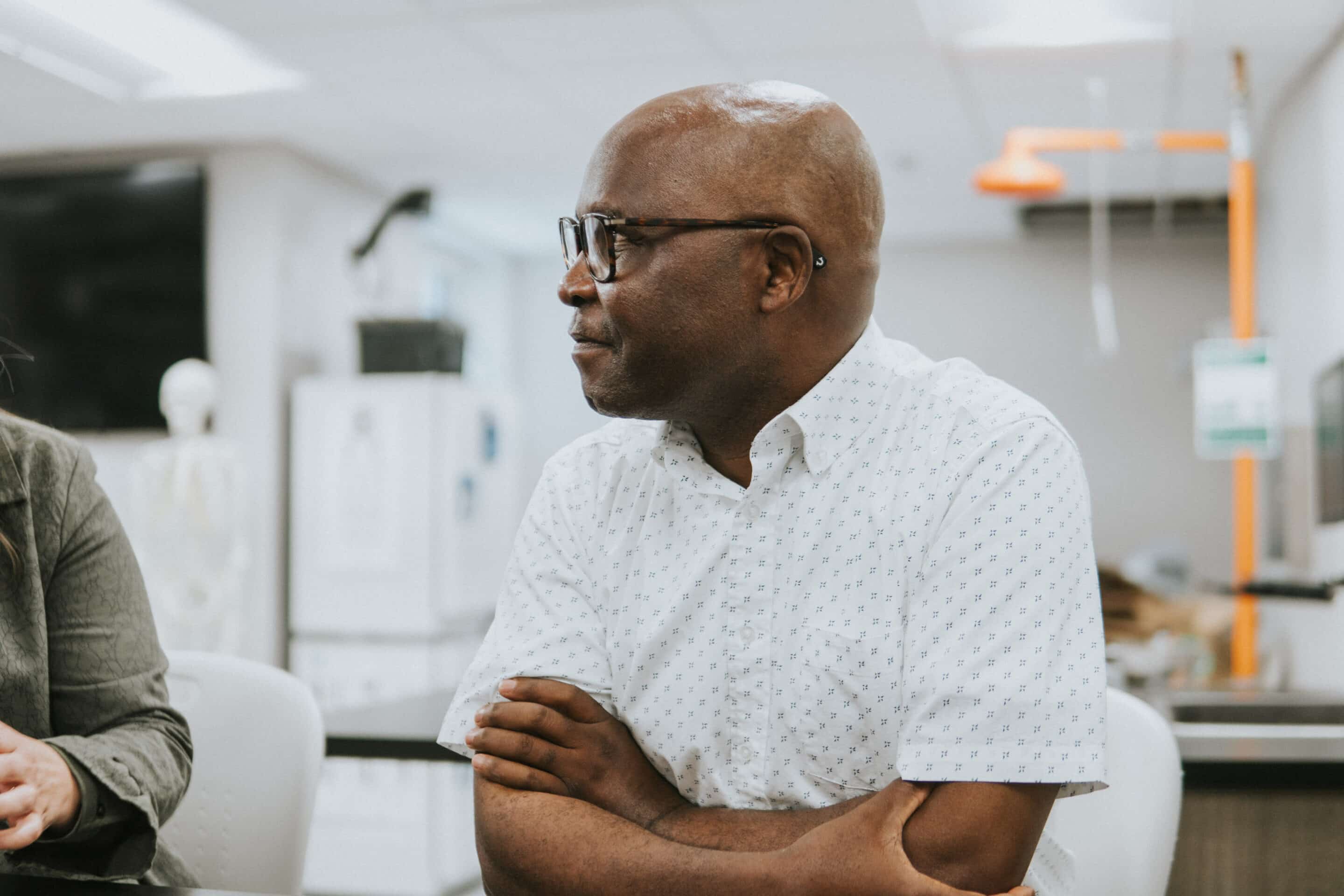DR. MORGAN MULENGA
Professor of Psychology, University College

ABOUT MORGAN
Dr. Morgan Mulenga received his B.A. in Psychology from the University of Zambia, an M.Sc. in Clinical Psychology from Acadia University, and a Ph.D. in Developmental Psychology from the University of Ottawa. Before beginning his tenure at Providence in 1999, he worked as a Clinical Psychologist in the Ministry of Health in Zambia, an Executive Secretary of the Zambia Association for Children and Adults with Learning Disabilities, and as a lecturer and head of the Psychology department at the University of Zambia.
Q: Where did you call home before arriving in Canada?
I was born in a small mining town in Zambia, called Chililabombwe. My parents moved a lot, and so I was raised in different cities including Ndola, Mufulira, Kasama, Kabwe and Lusaka.
Q: What were some of your earliest career goals?
From my earlier years right up to the end of my grade 12, I wanted to be a Mechanical Engineer. Psychology was not one of my aspirations. I took Psychology, grudgingly, because I was late in applying to the school of Natural Sciences at the University of Zambia. I now consider myself as a psychologist by profession, but an engineer by aptitude.

Q: What is one important lesson that you’ve learned over the years related to psychology?
My first job after getting my BA in psychology was working at Zambia’s biggest psychiatric referral hospital in Lusaka. That was an eye opener. I had so many misconceptions and stereotypes about mental illness and people suffering from mental illness. The lessons learnt included a significant shift in how I viewed people struggling with mental health issues. I became more empathic toward them and an advocate for them. This is the one significant lesson that stands out as a direct consequence of studying psychology.
Q: How do you spend your time outside of work?
Our home is my happy place. I love to see our children and grandchildren come home to visit and play with me. I love to talk to people about mental health related issues and to help correct some misconceptions and stereotypes about people with mental illness. I also love traveling, mostly outside of Canada.

Q: Would you be able to describe your approach to teaching?
My teaching and research philosophies have been shaped by how I view the classroom setting. I see it as a “marketplace” for exchange of experiences, ideas, and resources. Students and professors represent many different “booths” of information from which everyone can and may sample. Everyone has something to offer to the classroom that helps to enhance the learning experience. As a facilitator, empowering students to become responsible for their learning, I encourage them to actively participate in the learning process. I listen to them when they talk. I approve of all things that enhance students’ and professor’s learning experiences. I also recognize that teaching and learning is serious business, and feel that creating a learning environment that is periodically tempered with humour and occasional light-hearted conversations is also very important and can positively contribute to effective teaching and learning.
